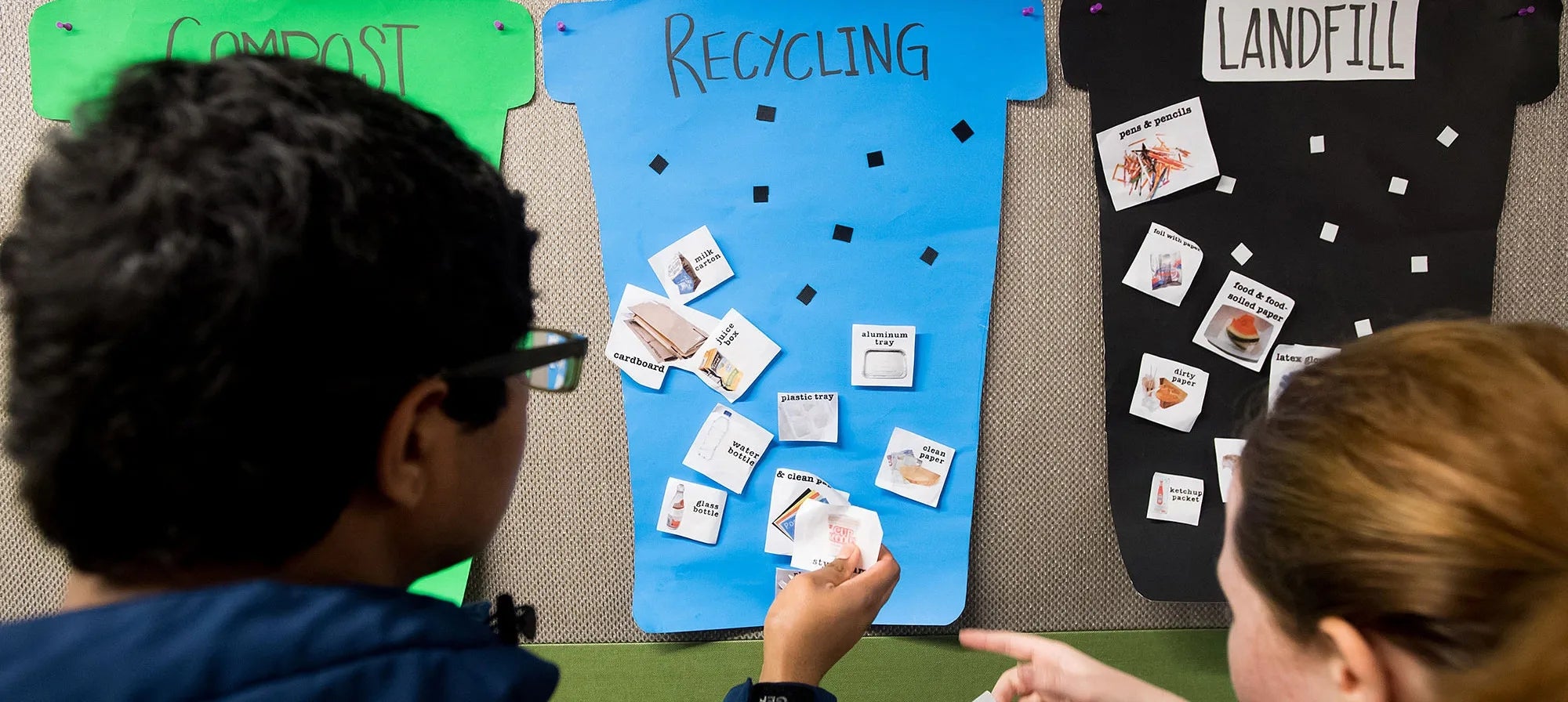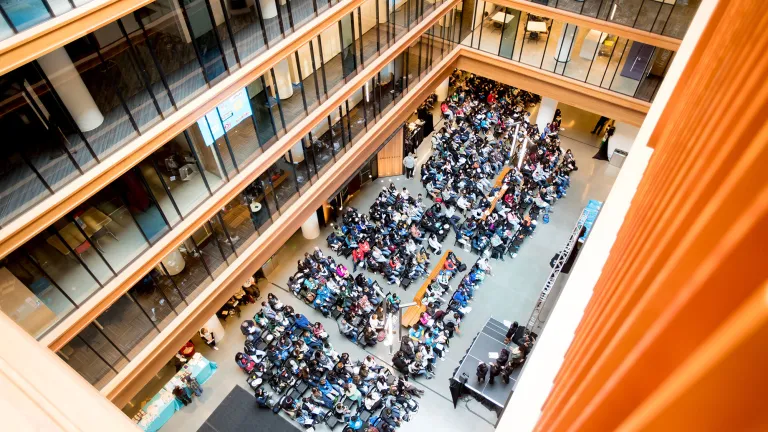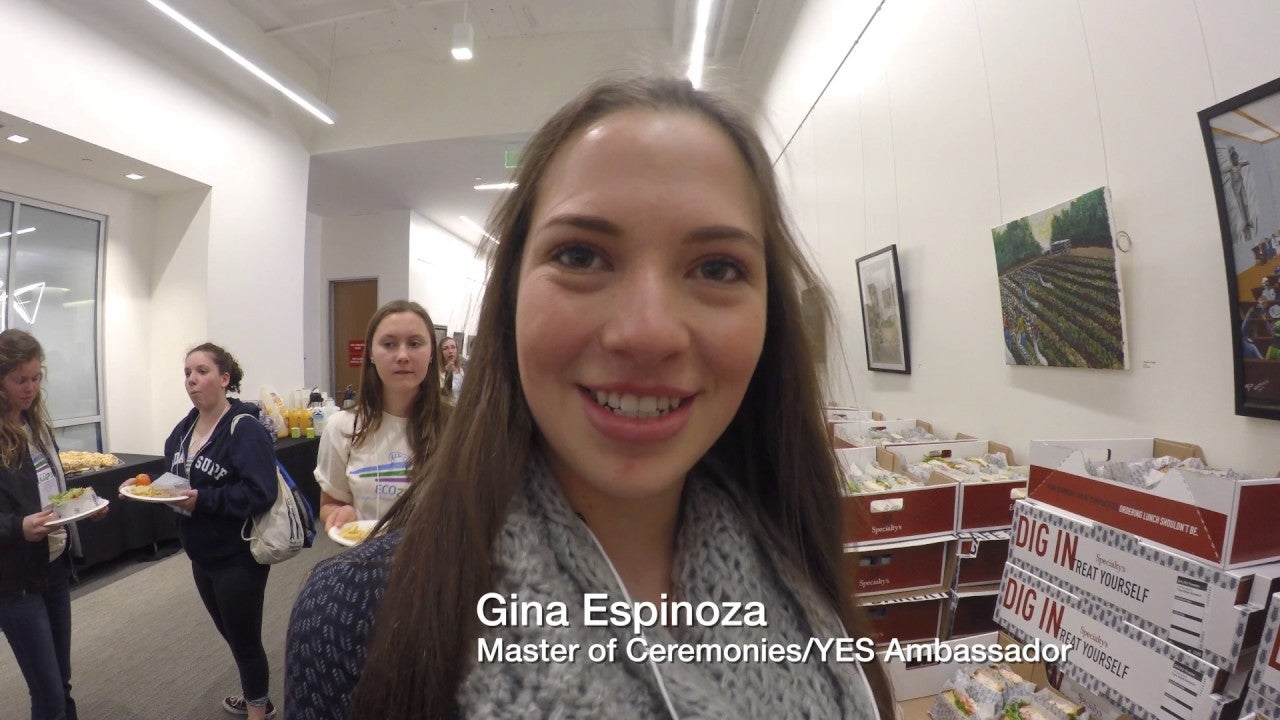
The Internet brought together Rose Strauss, Ophir Cohen-Simayof, Skye Hawthorne, Roshini Saravanakumar and Vrinda Suresh, students from Sir Francis Drake High School in San Anselmo, Lowell High School in San Francisco, Marin Academy in Fairfax, Dougherty Valley High School in San Ramon and Alsion Montessori Middle/High School in Fremont, respectively. They initially connected through a Greenpeace social media site just over a year ago. Saravanakumar works with the non-governmental environmental organization, and one day she received a message pleading, “I’m freaking out about climate change! We have to do something!”
Soon the five students were all texting each other and attending Air District meetings together as the Bay Area Youth for Climate Change Action (BAYCA) group, focusing on legislation, policy and the political process from a youth perspective. The five students presented together at the YES Conference on how teens can influence legislation at the municipal, state and federal levels, even if they can't yet vote. They are passionate about involving young people in the political process, and they have already met with their state legislative representatives.
At the conference, they told us about their approach and their reasons for organizing. “People have this idea that politicians are these figures that you just can’t talk to or touch or reach out to, but you really can, especially when it comes to state politicians,” explained Hawthorne in an interview just before his presentation. “It’s very hard to get a hold of representatives or senators on a national level," he continued, "but with state politicians, you can really just call their offices or email them — calling is better — and just schedule meetings.”
Their conference packet contained a step-by-step guide on the bill-passing process, an extensive list of local Bay Area representatives, and advice on how to identify issues and find solutions. After the 2016 presidential election, the students explained, a lot of young people felt that they had no voice in politics, and BAYCA hopes that their presentation provided a path for others to reach out to decision-makers. They want to let people know that, in the words of Cohen-Simayof, “you can influence your future.” “Personally a quote that I really like,” elaborated Hawthorne, "is ‘Decisions are made by those who show up.’ That’s what we’re trying to get at here. Just show up.”
The five students said that they are considering college majors and minors in the fields of climate modeling, political science, computer engineering, environmental engineering, environmental science and anthropology. Their activism and conference participation does not end at the YES Conference. BAYCA put on their own conference in March called the Bay Area Youth Climate Justice Conference, which emphasized intersectionality between causes such as criminal justice reform, food sustainability, immigration rights and LGBT rights. Workshops at the youth-led conference, held in Oakland in March 11, emphasized how these issues all relate back to the environment. The group relies on texting and social media to keep them connected, and they are always recruiting new members. Connect with them on their website or through Facebook.
Another group at the conference eager to spread enthusiasm to young people about government participation was the Center for Climate Protection, whose youth leadership coalition ECO2school put on a Climate Walk event at the YES Conference. Signs taped to chairs throughout the day detailed the major events in climate change history from the 1800s to present-day, including the scientific discovery of radiation and carbon monoxide by Joseph Fourier and John Tyndell, as well as the Industrial Revolution, in the 1800s; the first Earth Day on April 22, 1970; and the release of Al Gore's An Inconvenient Truth in 2006.
The Center for Climate Protection also set up a table where students could write postcards and send them directly to their local representatives. Rajan Uppal, a senior at Montgomery High School in Santa Rosa, leads her school's environmental club and helped to organize the Climate Walk for ECO2school. Why is she so passionate about environmental activism? "This is the one earth we have, and we've got to live here forever, so we better save it now," she answered.
On another floor of the Bay Area Metro Center, Neeti Dhomse, Anika Sharma, Nikki Sisodia and Thiviya Sri Indran were busy educating students about environmental leadership opportunities related to the private sector. They presented on the Kilowatt Smackdown competition, a nationwide competition where students compete against one another to see who can complete the most energy assessments for local businesses in their community. The four students from Fremont attend Mission San Jose High School, and they helped their city break the record last year in the competition by helping 482 local businesses identify annual energy savings of $637,000 and annual water savings of 260,000 gallons. Along the way, these students earned cash prizes, company swag and tours of local sustainability companies. They hope to spread the news of the competition to all of the Bay Area.
Students as young as sixth grade presented at the conference. Emmet Chen, Petra Cher, Alyssa Goldfield, Jason Lemold, and Jessica Weimles, all sixth graders at Yu Ming Charter School, delivered a presentation on how they started a climate change committee at their school. They shared information on what worked and didn’t work for them and how they helped spread the word to other schools. Their secret to success? "Make sure that everyone you're working with is really passionate about what they're doing, and try to make it fun, not just like learn, learn, learn — you want to learn and have fun," said Goldfield. "We took field trips. That was really fun. Going to these conferences is also a fun way to learn new things and help spread the word." Among events trips they've organized together are a tour of a waste management plant, a trip to an American Geophysical Union conference, nature hikes, and a movie night where they watched An Inconvenient Truth, a movie they all found quite alarming.
The five sixth-graders have advice for people their own age and for our country's leaders. For their peers, "they should do what we did," they explained. "If they really think that it's a big problem, then they should take a stand and find like-minded people who also think climate change is a problem and want to help address it." For our leaders, the students urge those in power to "research more about climate change. Listen more to what people say, and not just cut people off or say it's a hoax. Make more conferences where people can share their ideas and research." The young activists hope to institute more projects around their own school and in their community this year, and they hope grow the club to other grades next year.


